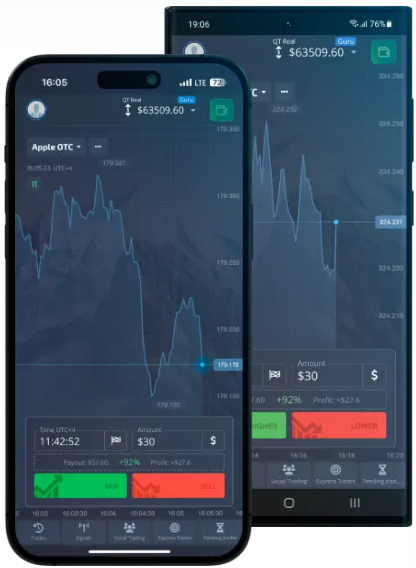
The Comprehensive Pocket Option AML Policy Explained
Patakaran sa AML at KYC Pocket Option
In today’s global financial environment, stringent regulations are in place to combat money laundering and financing of terrorism. One such regulation comes in the form of the Pocket Option AML Policy. This comprehensive policy is designed to prevent financial criminals from exploiting trading platforms for illicit activities. It is imperative for both service providers and users to understand the nuances of this policy to ensure compliance and protect the integrity of financial systems.
Understanding the Importance of AML Policies
Anti-Money Laundering (AML) policies are critical components of global financial regulatory frameworks. They serve as defenses against misuse of financial markets for money laundering and other illegal activities. The Pocket Option AML Policy is specifically tailored to deter, detect, and report any suspicious activities that may involve the proceeds of crime.
Money laundering typically involves three stages: placement, layering, and integration. During these stages, illicit funds are introduced into the financial system, disguised through a series of transactions to obscure their origin, and then reintegrated into the economy as legitimate funds. Proper AML policies help interrupt this process, maintain market integrity, and prevent the funding of terrorism.
The Objectives of the Pocket Option AML Policy
The fundamental objectives of the Pocket Option AML Policy are to safeguard the platform from being used for money laundering activities and to comply with international regulations. The policy is structured around key pillars, namely client verification, transaction monitoring, and record keeping.
Client Verification
At the core of AML strategies is the concept of Know Your Customer (KYC). Pocket Option’s policy mandates thorough identity verification processes to ensure that users are who they claim to be. Customers must provide valid identification documents, proof of address, and in some cases, additional information to establish their identity. This step is crucial in preventing fraudulent activities and establishing user accountability on the platform.
Transaction Monitoring
Continuous monitoring of transaction activities is another cornerstone of the Pocket Option AML Policy. Advanced algorithms and analytics tools are employed to monitor and review all transactions for irregular patterns or unusual behaviors. Suspicious transactions are flagged and further investigated to determine if they are linked to money laundering or other criminal activities. This proactive monitoring helps in identifying potential threats and taking timely action.

Record Keeping
Accurate and detailed record keeping is essential for a successful AML policy. Pocket Option ensures that financial transactions are meticulously documented and stored for a specified duration. These records are invaluable for audits and investigations and provide a clear trail that authorities can follow in case of any wrongdoing.
Compliance and Reporting Obligations
Compliance with international standards and cooperation with regulatory bodies are pivotal components of the Pocket Option AML Policy. The policy requires regular audits and assessments to ensure adherence to the latest AML regulations and standards. Additionally, Pocket Option is obligated to submit Suspicious Activity Reports (SARs) to relevant authorities whenever there are indications of potential money laundering activities.
The Impact of the Pocket Option AML Policy
The implementation of a robust AML policy like that of Pocket Option has far-reaching benefits. It not only protects the trading platform and its users but also contributes to global efforts to curb financial crime. By deterring criminals and preventing financial abuse, the policy upholds the credibility and reliability of financial institutions and markets.
Moreover, adherence to AML regulations enhances customer confidence in the platform. Clients are assured that their funds and investments are protected from criminal influence, fostering trust and engagement in the marketplace. Ultimately, a strong AML policy supports a stable, transparent, and fair trading environment.
Challenges and Future Directions
Despite its effectiveness, implementing an AML policy comes with challenges. Balancing stringent compliance measures while maintaining user privacy and convenience can be difficult. Additionally, financial criminals continuously evolve their tactics, requiring ongoing innovation and adaptation from AML frameworks.
The future of AML in trading platforms like Pocket Option will likely see increased integration of technology, such as machine learning and artificial intelligence. These tools can enhance the detection of suspicious activities and streamline compliance processes. Collaborative efforts across financial institutions and technological advancements will be critical to staying ahead of threats.
Conclusion
The Pocket Option AML Policy is an essential defense mechanism in the fight against financial crime. By upholding rigorous standards and continuously evolving to meet new challenges, Pocket Option contributes to a safer, more secure global financial system. As users and stakeholders understand and support these policies, the collective effort will fortify the integrity of financial services against misuse.


Leave A Comment